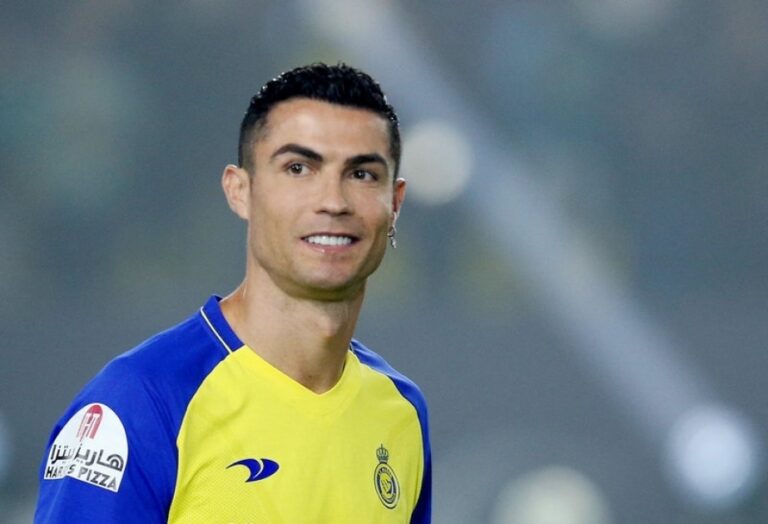Introduction
Cristiano Ronaldo dos Santos Aveiro, commonly known as Cristiano Ronaldo or CR7, is a name synonymous with excellence, perseverance, and global soccer dominance. From his humble beginnings on the Portuguese island of Madeira to becoming one of the most celebrated athletes in history, Ronaldo’s journey is a testament to relentless ambition and unparalleled skill. This article delves into his career milestones, playing style, off-field influence, and legacy, while addressing frequently asked questions about the icon.
Early Life and Rise to Stardom
Born on February 5, 1985, in Funchal, Madeira, Ronaldo grew up in a working-class family. His early passion for soccer saw him join local club Andorinha before moving to Nacional and later Sporting CP’s prestigious youth academy. At just 12 years old, he left home to pursue his dreams in Lisbon, showcasing a work ethic that would define his career. His breakthrough came in 2003 during a preseason friendly for Sporting CP against Manchester United, where his dazzling performance convinced Sir Alex Ferguson to sign him.
Ronaldo’s move to Manchester United in 2003 marked the start of his global ascent. Under Ferguson’s mentorship, he evolved from a raw talent into a world-class winger, winning three Premier League titles, a UEFA Champions League trophy, and his first Ballon d’Or in 2008. His blend of speed, trickery, and goal-scoring prowess redefined the role of a modern forward.
Real Madrid Era: Redefining Greatness
In 2009, Ronaldo transferred to Real Madrid for a then-world-record fee of £80 million. Over nine seasons, he shattered records, scoring 450 goals in 438 appearances—a club record. His rivalry with Barcelona’s Lionel Messi captivated fans, as the duo pushed each other to unprecedented heights. Ronaldo’s tenure at Madrid included four Champions League titles (2014, 2016–2018), where he became the competition’s all-time top scorer.
Key to his success was his adaptability. Ronaldo transitioned from a flashy winger to a clinical striker, mastering positioning and aerial ability. His iconic “Siuuu” celebration became a global phenomenon, symbolizing his relentless drive.
Later Career: Juventus, Manchester United Return, and Al-Nassr
After leaving Madrid in 2018, Ronaldo joined Juventus, aiming to revive the Italian giants’ European ambitions. He won two Serie A titles and became the fastest player to score 100 goals for the club. In 2021, he returned to Manchester United, delivering memorable moments despite the team’s struggles.
In 2023, Ronaldo shocked the world by joining Saudi Arabian club Al-Nassr, signaling a new chapter focused on growing soccer’s influence in the Middle East. While critics questioned the move, his presence boosted the Saudi Pro League’s global profile.
International Career: Portugal’s Pride
Ronaldo’s contributions to Portugal are legendary. He is the men’s all-time leading international goal scorer (130+ goals) and has competed in five European Championships and five World Cups. His leadership during Portugal’s 2016 Euro victory—despite an early injury in the final—cemented his status as a national hero.
Playing Style and Evolution
Ronaldo’s playing style is a blend of athleticism, technical mastery, and tactical intelligence. Early in his career, he relied on stepovers and explosive dribbling. As he aged, he prioritized efficiency, using his aerial ability (he has scored over 140 headers) and lethal left foot to dominate in the box. His dedication to fitness—reportedly spending millions on personal trainers and cryotherapy—has allowed him to compete at the highest level into his late 30s.
Off-Field Influence: Brand CR7
Beyond soccer, Ronaldo is a global brand. He boasts over 600 million social media followers, making him the most-followed athlete. His CR7 brand includes fragrances, clothing, and hotels, while partnerships with Nike, Herbalife, and Clear shampoo underscore his marketability.
Philanthropy is also central to his identity. Ronaldo has donated millions to children’s hospitals, disaster relief, and cancer research. In 2020, he waived 20% of his Juventus salary to help the club during the COVID-19 pandemic.
Conclusion: The Legacy of CR7
Cristiano Ronaldo’s impact transcends soccer. He embodies the virtues of discipline, resilience, and ambition, inspiring millions worldwide. Whether breaking records, lifting trophies, or giving back to communities, Ronaldo’s legacy as one of the greatest athletes of all time is secure. As he continues to defy age and expectations, his story remains a masterclass in turning potential into greatness.
Frequently Asked Questions (FAQs)
1. How many Ballon d’Or awards has Ronaldo won?
Ronaldo has won five Ballon d’Or trophies (2008, 2013, 2014, 2016, 2017), placing him second only to Lionel Messi (8).
2. What makes Ronaldo different from Messi?
While both are legends, Ronaldo is celebrated for his physicality, aerial ability, and adaptability across leagues. Messi is often praised for his dribbling and playmaking. Their rivalry has defined modern soccer.
3. Why did Ronaldo leave Real Madrid?
Ronaldo sought a new challenge after feeling undervalued by Madrid’s leadership. His move to Juventus allowed him to test himself in Serie A.
4. Has Ronaldo won a World Cup?
No, but he led Portugal to a Euro 2016 title and a UEFA Nations League victory in 2019.
5. What are Ronaldo’s philanthropic efforts?
He has funded hospitals, supported disaster relief in Indonesia and Nepal, and donated blood marrow to save a child’s life.
6. Will Ronaldo retire soon?
At 39, Ronaldo has hinted he may play into his 40s. His focus remains on competing and inspiring future generations.
This article captures the essence of Cristiano Ronaldo—the man, the athlete, and the icon. His journey continues to evolve, proving that greatness is not a destination but a relentless pursuit.
